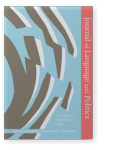Vol. 20:2 (2021) ► pp.304–324
Balancing the ideals of public participation
Discursive legitimation strategies of a disputed practice
Local authorities in western societies increasingly initiate public participation processes despite criticism of these methods. To understand this development calls for in-depth studies of how the goals and values of public participation are articulated in practice. This paper analyzes the discursive legitimation strategies deployed by civil servants in twelve planning meetings for a participatory process aimed at mitigating violence in a Swedish suburb. The study draws on previous research on discursive legitimation, and presents the context-specific strategies of authorization, de-legitimation, cosmology and addressing of values. The analysis highlights that a core discursive tension in this practice arises from its need to seek mandate in the municipal structure, while the value discourses used to legitimize public participation build on a break from traditional bureaucracy. The study contributes to the broader literature on discursive legitimation in contemporary political contexts, with detailed empirical accounts of how a disputed practice is legitimized in interaction.
Article outline
- 1.Introduction
- 1.1Participation as a disputed practice
- 2.Discourse and legitimation
- 2.1Analytical framework
- 2.2Previous research on discursive legitimation
- 3.Material and method
- 3.1The case study
- 3.2Data
- 3.3Method
- 4.Results
- 4.1Authorization
- 4.2De-legitimation (distancing to previous processes)
- 4.3Cosmology
- 4.4Addressing of values
- 5.Summary and discussion
- 5.1Balancing participatory ideals at the local level
- Notes
-
References
